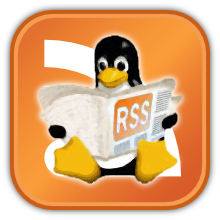Making the switch to Ubuntu – or any popular Linux distribution – is more than the mere act of changing operating systems. You must also have apps that allow you to get work done. In this article, I'll be sharing critical applications that I rely on, and I’ll talk about how I use them in my daily activities. Apps for Daily Use. Generally when it comes to software on the Linux desktop, I drop
2.- Install Kubuntu on Windows XP systems.
Windows XP has officially died today as Microsoft pulls the plugs that leaves millions of users as juicy targets for crackers and cyber criminals and there will be massive attacks on these systems so it’s extremely important for Windows XP users to move away from this dead OS. There are two options for such users – either they upgrade to heavily criticized Windows 8 (which may not even work on
3.- 10,000 Users of Ubuntu Phone.
As we enter the final months before the first Ubuntu phones ship from our partners Meizu and Bq, the numbers of apps, users and downloads continues to grow at a steady pace. Today I’m excited to announce that we have more than ten thousand unique users of Ubuntu on phones or tablets! Users. Ubuntu phone (and tablet) users sign into their Ubuntu One account on their device in order to download
4.- Unity 8 on Ubuntu 14.04 “Trusty Tahr”.
Introduction. One of the longer-term Ubuntu goals is to provide a fully convergent cross-platform operating environment, from the mobile phone form factor through tablets, netbooks, notebooks, desktops, and workstations to the big screen television entertainment system experience. Today's, and tomorrow's, technology can provide hardware that transforms between one or more of those form factors
5.- Abyss: The Wraiths Of Eden Hidden Object Game Released On Steam For Linux.
Abyss: The Wraiths of Eden has been available on Steam for Windows since October 2012, but now the game is also available on Linux. There was no official announcement regarding the release of the Linux version, but the one mentioning the 30% discount. “Discover and investigate a forgotten underwater city built in an intriguing Art-Deco style. This former utopia hides many spine-chilling
6.- Top 10 blog posts for Aprile 2014 from Linuxlandit & The Conqueror Penguin.
1.- Ubuntu 14.04 “Trusty Tahr” released Canonical has announced that its third Long Term Support (LTS) cloud release, Ubuntu 14.04, will be available from 17 April. Ubuntu 14.04 LTS will run on all major public cloud services and works with service providers including AWS, Azure, HP Cloud, Joyent, and IBM SoftLayer and SmartCloud. The vendor said the update includes new versions of Juju and
7.- Ubuntu 14.04 “Trusty Tahr” released
Canonical has announced that its third Long Term Support (LTS) cloud release, Ubuntu 14.04, will be available from 17 April. Ubuntu 14.04 LTS will run on all major public cloud services and works with service providers including AWS, Azure, HP Cloud, Joyent, and IBM SoftLayer and SmartCloud. The vendor said the update includes new versions of Juju and MAAS to "design, deploy and scale services
8.- Running Unity 8 on Ubuntu 14.04 and Virtual Box.
Unity 8 is one of the hottest things coming inside 2014 both for mobile devices and Ubuntu desktop boxes. Unity 8 will run on a new display server, called Mir, made by Canonical. It will use a Qt/QML SDK for building applications, and it will provide an unified run-time environment across all devices, Mobiles, Tablets and Desktops/Laptops. That means applications should run in all platforms
9.- Dicelab is a tool to calculate the probability distribution of dice rolling schemes.
Dicelab is a tool to calculate the probability distribution of dice rolling schemes, and to roll dice accoring to such schemes. This can be used to analyse or design games, but may be useful in other situations as well. Using a formal language to specify the dice rolling schemes allows dicelab to handle many, if not most, real and imaginable dice rolling problems. Example Assuming a
10.- CUC³ covers an exceptionally broad range of topics in theoretical and quantum chemistry.
The Cambridge University Centre for Computational Chemistry groups theoretically-minded members of the Cambridge Department of Chemistry in premises on the recently refurbished third floor of the Department. Around 50 members, comprising staff, research fellows, postdoctoral associates, postgraduate students, and visiting scientists from all over the world, work on many aspects of theoretical and
If you liked this article, subscribe to the feed by clicking the image below to keep informed about new contents of the blog:















0 commenti:
Post a Comment